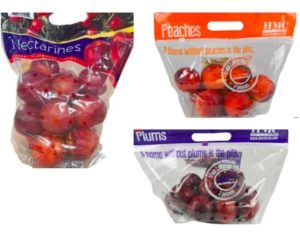Nectarines, Plums, Peaches Listeria Outbreak
A Listeria outbreak linked to peaches, plums, and nectarines has sickened 11 people killing one of them. A pregnant patient experienced preterm labor.
The peaches, plums, and nectarines, linked to this outbreak were produced by HMC Farms of Kingsburg, California, and sold in 2022 and 2023 at Sam’s Club stores in certain states and at stores under the Albertsons banner.
HMC has issued a recall and these stonefruits should no longer be on store shelves. But symptoms of a Listeria infections can sometimes take as long as 70 days to develop, so consumers who have purchased any of these fruits should monitor themselves for symptoms.
Symptoms of a Listeria Infection
Pregnant women, people over 65, and people with compromised immune systems are at high risk of contracting Listeria infections
Symptoms include:
- High fever, stiff neck, and other muscle aches
- Headache, loss of balance, confusion or convulsions
- Upset stomach or diarrhea
.
The patients in this outbreak range in age from 30 to 80 years old. They became ill on dates ranging from August 22, 2018, to August 16, 2023.
The number of illnesses reported from each state included in this outbreak are: California (3), Colorado (1), Florida (3), Illinois (1), Kansas (1), Michigan (1), and Ohio (1). The fatality was reported from California.
A sample of HMC Farms peaches tested positive for Listeria. And whole genome sequencing tests revealed that the Listeria strain found in the peaches is closely related to the strain cultures from the outbreak patients. This means that people likely got sick from eating these peaches, according to the Centers for Disease Control and Prevention (CDC).
Contact our Experienced Listeria lawyers today
The food safety legal team at Pritzker Hageman has decades of experience investigating Listeria outbreaks on behalf of clients who have been sickened in them and family members who have suffered the wrongful death of a lost loved one. We have a record of collecting some of the largest foodborne illness compensation claims in U.S. history. We understand how devastating a Listeria infection can be.

